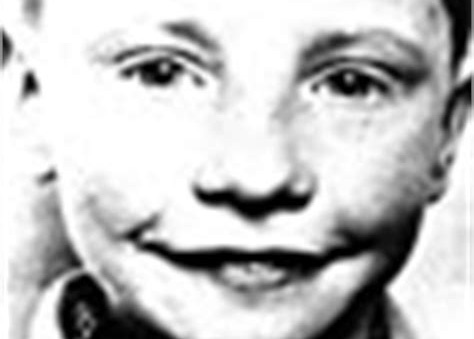
A brother of the first child killed in the conflict fifty years ago has revealed how his dying father asked him to keep fighting for the truth.
Nine-year-old Patrick Rooney was shot by the RUC police on August 15, 1969 in the bedroom of his home in the Divis area of west Belfast. No-one has ever been convicted in relation to his death. He was shot after the RUC opened up with a machine gun fitted to a Shorland armoured car.
Eight people died across the north between August 14-16 and hundreds of Catholics were forced to flee their homes throughout Belfast after they were attacked by loyalist mobs.
The Belfast violence erupted in the wake of the ‘Battle of the Bogside’ in Derry during which nationalist residents held off an attempt by loyalists and the RUC to enter the district.
It has been reported that a former RUC man questioned last June by Police Ombudsman investigators in relation to the death of Patrick Rooney gave a ‘no comment’ interview.
He is believed to have been a gunner in one of three Shorland armoured vehicles which were in the Divis area at the time of the shooting. The other two gunners have since died.
The RUC man was identified as ‘Officer Y’ at the Scarman Tribunal, set up to examine the events of August 1969, and denied being responsible for shooting Patrick Rooney.
A file relating to his death was forwarded to the Public Prosecution Service last August.
Patrick’s brother Con Rooney has recounted how his father Neily asked him to continue campaigning before his death in 2013. He said his father “blamed himself” for what happened.
Con was just eight when he saw his brother being killed and he recalled the harrowing scenes.
“We were all in the same room, my daddy had been grazed and my mammy was grazed on the cheek,” he said.
“He (his father) said ‘I have been shot’. Patrick was in the corner and he slid down the wall. My mammy had a cream coat and when she lifted him, it was full of blood and they put him on the bed.
“My mammy ran down the stairs screaming and we ran after her screaming and we pulled her back. Our neighbours came in and we were on our knees praying.”
His brother’s body was carried from their home to an ambulance. His father later went to the morgue to identify his son before returning home to break the devastating news.
“He said he was dead and mammy started again,” he said.
Mr Rooney said the death of his brother had a huge impact on his family, including his mother Alice.
He said he was also traumatised at losing his brother who was just a year older than him.
“One night my daddy came up to check me and I was totally unconscious and they said it was delayed shock,” he said.
“We were not allowed to go to the funeral, my mammy and daddy had said we had seen enough and that it would do more harm than good.”
Neely Rooney campaigned all his life on his son’s behalf, even giving interviews on his deathbed.
“With me being the oldest now, my daddy asked me when he was dying would I take the case on,” says Con. “Justice and compensation was what my daddy said. He wanted to know who fired the shots, why they fired them, things like that.”
Alice is now 82; Con fears that she will not live to see any prosecution.
“It would be brilliant if we did have a case brought,” says Con, “to know that we beat the establishment and the truth is going to come out. It would be like the weight of the world lifting off your shoulders.
“Every time I go into town, I pass that spot and straight away a picture comes into my mind of those flats and the night it happened. “It’s as sharp as ever, it hasn’t gone away, and then you see all the people on those tours standing there looking.”
Con says the past must be addressed: “If we don’t deal with it, it’s just going to keep on and on.”
![[Irish Republican News]](https://republican-news.org/graphics/title_gifs/rn.gif)
![[Irish Republican News]](https://republican-news.org/graphics/title_gifs/harp.gif)

